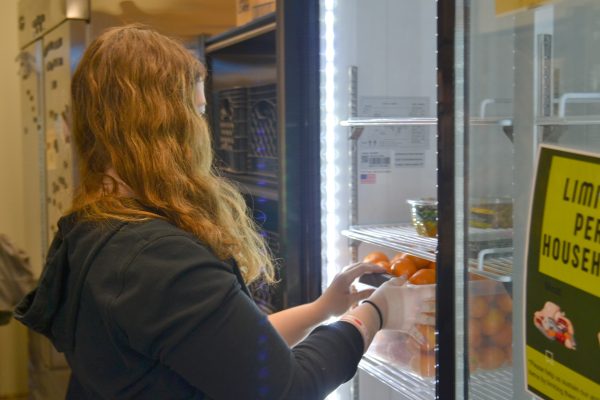Concerns over privacy elicit change
A longstanding advising policy around sharing student financial information with faculty has been replaced.
February 26, 2020
Hamline has recently altered an advising policy that previously allowed advisors access to information on the exact amount of money students owed to the university.
According to Hamline Registrar Gwenn Sherburne, the long-standing policy allowed faculty advisors to view the dollar amounts of money owed if students had a hold on their account. Holds, often triggered by large balances on a student’s account, are important to the advisor/advisee relationship since they can impact registration.
Previously, this detailed information was accessible to faculty via Piperline, one of the platforms Hamline uses for advising among other things. At the start of this year that was changed to no longer display that information.
“When the Oracle first inquired about this, it prompted us—the Provost, CASA [Center for Academic Success and Achievement], Student Accounts, and Registrar—to review how faculty advisors use Piperline,” Sherburne said. “We came to the conclusion that dollar amounts for student financial holds are not vital to the faculty advising role, so they were removed from Piperline.”
She added that the current, primary tool for advisors is EAB, a platform that holds most of the necessary advising information.
Though EAB never displayed the exact debt owed by students, as is the case in Piperline, Professor Jen England expressed concerns about whether all the personal details about students available on both platforms are necessary for the purposes of advising.
“It’s not hard to find out a lot of things about you all… I could look you up and tell you very easily where you live, where your parents live, your cell phone number,” England said. “I don’t know that I need any of that information to be your advisor.”
England added that being able to see the exact amount of money her advisees owe to Hamline is not something that is useful to her work as an advisor.
“That number isn’t something I need to know, what I need to know is where it’s coming from,” England said. “For me, I think it should be in the student’s power to disclose that number.”
The Family Educational Rights and Privacy Act (FERPA) dictates that a school must have a student’s consent to share information about their educational record if they are over 18 years old. Although FERPA closely protects student information from being shared outside an institution, data sharing within a university is more complex.
“FERPA regulations do allow such information to be shared with individuals within an institution who have a legitimate educational interest in using the information for purposes such as advising students,” Sherburne said. “Such individuals would normally include those involved with student registration and records, student finances and financial aid, and faculty who teach and advise students.”
England said she thinks the original decision to include student debt amounts on Piperline was likely something made with little foresight, but no ill intent.
“To me, it boils down to, is it a big deal?” England said. “Probably not. Nobody is going to be harmed by this, but it doesn’t seem necessary at the same time.”
Lisa Nordeen, Assistant Dean for Academic Success and Retention, affirmed that the dollar amount owed by students has never appeared on the EAB platform for either faculty advisors or professional advisors with the Center for Academic Success and Achievement (CASA).
“Financial aid and student accounts can see [the dollar amount],” Nordeen said. “We do know if someone is on a hold. We can see holds and see when holds were lifted, we can see who can lift a hold so we can send students to that office.”
Nordeen emphasized that the goal of the EAB platform is to provide a variety of information to advisors, such as a student’s GPA and major, to aid in ensuring academic success.
“From my perspective overseeing the professional advisors on campus, I think a lot of the work we do tries to be proactive but a lot of it is relational in ways that allows students to feel comfortable coming in, but also having the outreach that isn’t taken as punitive or belittling,” Nordeen said.





